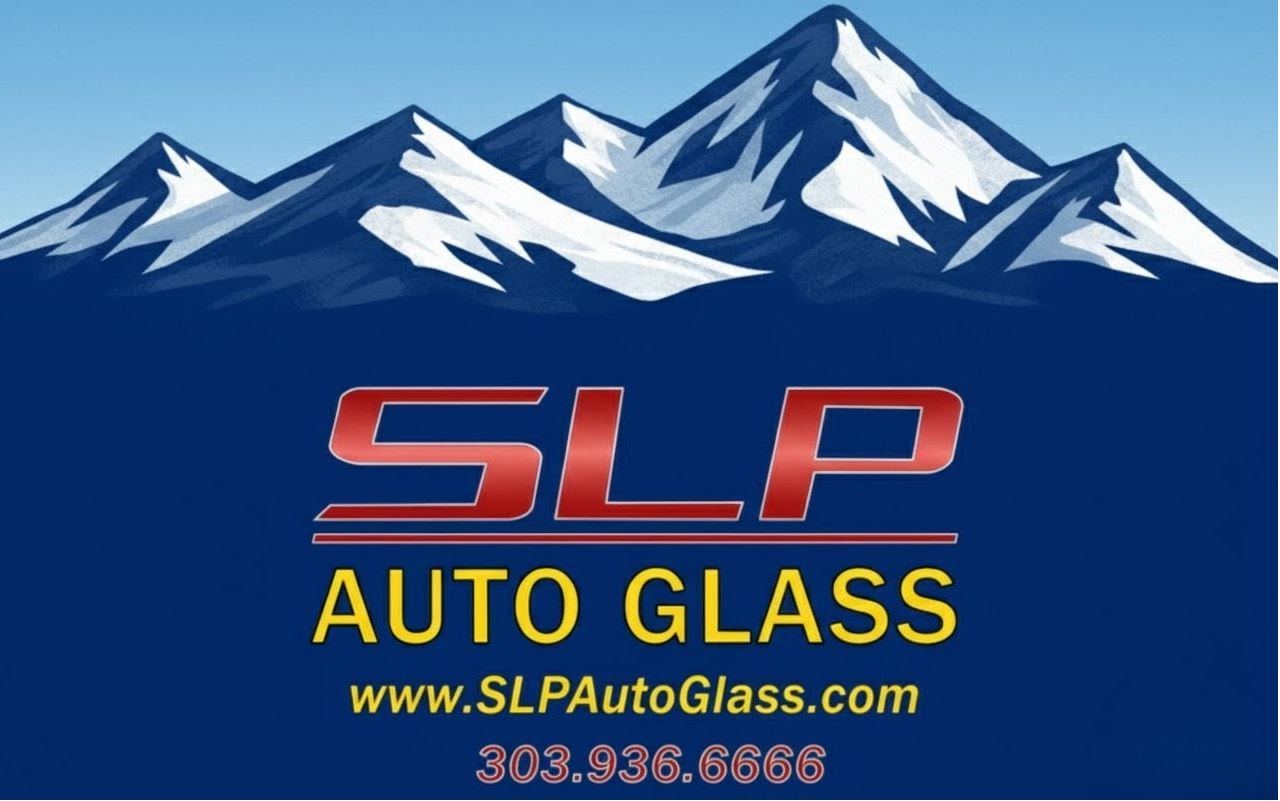When you’re living in Lakewood, CO, and facing the need for auto glass replacement, one critical question often arises: Does auto glass replacement affect car warranties? This concern is valid, especially considering the investment you’ve made in your vehicle. In this comprehensive guide, we’ll explore various aspects of this topic to help you make informed decisions while ensuring your car’s warranty remains intact.
Short Answer
Auto glass replacement does not necessarily affect car warranties, but it depends on the terms of the warranty and the type of replacement glass used. Using OEM (Original Equipment Manufacturer) glass and having the replacement done by certified technicians usually keeps the warranty intact. However, using aftermarket parts might affect the warranty if they don’t meet the manufacturer’s specifications or if the installation causes damage. It’s always best to check the specific terms of your car’s warranty before proceeding with auto glass replacement.
Understanding Car Warranties and Auto Glass Services
Car warranties are agreements between you and the manufacturer, promising to repair or replace certain parts of your vehicle that may fail due to manufacturing defects. However, the specifics of these warranties can vary significantly. When it comes to auto glass services in Lakewood, CO, it’s crucial to understand how these services might affect your warranty. For example, some warranties might not cover damages caused by external factors like road debris or accidents, which are common causes of auto glass damage. Therefore, knowing the extent and limitations of your warranty is key to ensuring that any auto glass replacement or repair does not void it.
- Check Warranty Terms: Review the specific terms and limitations of your car warranty regarding auto glass.
- Understand Coverage Scope: Know what types of damages (manufacturing defects vs. external damages) are covered.
- External Damage Consideration: Recognize that auto glass damage from road debris may not be covered.
- Service Provider Compliance: Ensure that the auto glass service provider complies with warranty requirements.
- Warranty Voiding Factors: Be aware of actions or repairs that might void your warranty.
Auto Glass Replacement: OEM vs. Aftermarket Parts
The debate between using OEM (Original Equipment Manufacturer) parts and aftermarket parts is significant when it comes to auto glass replacement. OEM parts are produced by the vehicle’s manufacturer and are identical to the parts your car came with. These parts typically have a higher assurance of quality and compatibility with your vehicle, which can be crucial for maintaining your warranty. On the other hand, aftermarket parts are usually less expensive but may vary in quality and might not always meet the specifications required by your car manufacturer, potentially leading to warranty issues.
- OEM Parts: Produced by the vehicle’s manufacturer, ensuring compatibility and quality.
- Aftermarket Parts: Generally less expensive, but quality and compatibility may vary.
- Warranty Implications: Using aftermarket parts could potentially void the warranty.
- Cost Considerations: Weigh the cost benefits of aftermarket parts against potential warranty risks.
- Quality Assurance: OEM parts usually offer higher assurance of meeting manufacturer’s specifications.
Warranty Coverage and Auto Glass Claims

Navigating warranty coverage for auto glass claims can be a complex process. Typically, warranties cover defects in materials and workmanship but may not extend to damage from accidents or environmental factors. In Lakewood, CO, where environmental conditions can vary, understanding the nuances of your warranty coverage for auto glass is essential. It’s advisable to consult with your warranty provider before undertaking any auto glass replacement to confirm whether the proposed service will affect your coverage. This precaution ensures that you do not inadvertently void your warranty by replacing your auto glass without proper authorization.
- Material and Workmanship Coverage: Typically, warranties cover defects in these areas but not accidental damage.
- Environmental Factors: In places like Lakewood, CO, consider how environmental conditions affect warranty claims.
- Consultation Before Service: Always consult your warranty provider before undertaking auto glass replacement.
- Accidental Damage: Be aware that this is often not covered under standard warranties.
- Authorization Requirement: Understand the importance of getting proper authorization to maintain warranty validity.
Insurance Considerations in Auto Glass Replacement
Your auto insurance policy is a crucial factor in the auto glass replacement process. Many insurance policies offer coverage for auto glass repair or replacement, which can be a relief if you’re concerned about warranty implications. However, it’s important to understand your policy’s deductibles and coverage limits. In Lakewood, CO, some policies might offer full coverage for auto glass replacement, while others may require a deductible. Additionally, using insurance for auto glass services might impact future premiums, so it’s important to weigh the costs and benefits.
- Policy Coverage: Understand what your auto insurance policy covers regarding auto glass replacement.
- Deductibles and Limits: Be aware of any deductibles and coverage limits in your policy.
- Insurance vs. Warranty: Know how using insurance for auto glass replacement interacts with your car warranty.
- Premium Implications: Consider potential impacts on future insurance premiums.
- Cost-Benefit Analysis: Weigh the costs of out-of-pocket payment versus using insurance for auto glass services.
The Role of Certified Auto Glass Technicians
The role of certified auto glass technicians is pivotal in ensuring that your auto glass replacement or repair is performed correctly. These professionals are trained to handle the specific requirements of different car models and understand the nuances of various types of auto glass. In Lakewood, CO, where weather and road conditions can vary, the expertise of a certified technician is invaluable. They ensure that the replacement glass is installed correctly, maintaining the structural integrity of your vehicle and compliance with safety standards, which is crucial for keeping your warranty intact.
- Professional Training: Certified technicians are trained to handle specific car models and glass types.
- Correct Installation: Ensures the auto glass is installed correctly, maintaining vehicle safety and integrity.
- Compliance with Standards: Technicians follow safety standards crucial for warranty maintenance.
- Understanding of Local Conditions: In Lakewood, CO, technicians are aware of how local conditions affect auto glass.
- Warranty Preservation: Proper installation by a certified professional helps in maintaining the validity of your warranty.
Impact of Auto Glass Replacement on Safety Features
Modern vehicles are increasingly equipped with advanced safety features, many of which are integrated into the windshield and other auto glass components. Features like advanced driver assistance systems (ADAS), which include lane departure warnings and automatic emergency braking, often rely on sensors embedded in the windshield. When replacing auto glass, it’s essential to ensure that these features are recalibrated correctly to maintain their functionality. Incorrect installation or calibration can not only diminish the effectiveness of these safety features but also lead to potential warranty issues if the vehicle’s safety systems are compromised.
- Integration with Safety Systems: Many modern vehicles have safety features integrated into auto glass.
- Recalibration Necessity: Post-replacement, recalibration of features like ADAS is essential.
- Effectiveness Maintenance: Ensures that safety features continue to function effectively after replacement.
- Potential Warranty Issues: Incorrect installation can lead to warranty issues if safety systems are compromised.
- Professional Handling: Importance of having qualified professionals handle the recalibration process.
Avoiding Warranty Voidance: Best Practices

To avoid inadvertently voiding your car warranty when replacing auto glass, there are several best practices to follow. First, always consult your warranty documentation and speak with your dealership or warranty provider to understand the terms and conditions. Choose a reputable auto glass service provider who is familiar with the requirements of your specific vehicle model and warranty stipulations. Ensure that any replacement parts used, whether OEM or aftermarket, are compliant with your vehicle’s specifications. Keeping detailed records of all repairs and replacements, including receipts and service reports, is also crucial for future warranty claims.
- Consultation with Providers: Check with your dealership or warranty provider about auto glass services.
- Choosing the Right Service Provider: Select a provider knowledgeable about your vehicle and warranty requirements.
- Compliance with Specifications: Use parts that comply with your vehicle’s specifications.
- Record Keeping: Maintain detailed records of all auto glass services.
- Awareness of Warranty Terms: Always be aware of the terms and conditions of your warranty.
Understanding the Magnuson-Moss Warranty Act
The Magnuson-Moss Warranty Act is a federal law that was enacted to protect consumers from deceptive warranty practices. It stipulates that a car warranty cannot be voided just because aftermarket parts were used, provided the parts used are of comparable quality to OEM parts. This means that if you choose to use aftermarket glass for your replacement in Lakewood, CO, your warranty will not automatically be voided. However, it’s important to ensure that the aftermarket parts used meet the necessary standards and do not cause any damage or malfunctions that could affect your vehicle’s performance or safety.
- Protection from Deceptive Practices: The Act protects against unfair warranty voiding.
- Aftermarket Parts Use: Allows the use of aftermarket parts without automatically voiding the warranty.
- Quality Standards: Aftermarket parts must meet quality standards comparable to OEM parts.
- Non-Voidance Clause: Warranty cannot be voided solely for using aftermarket parts.
- Importance of Compliance: Ensure aftermarket parts do not cause damage that could affect vehicle performance.
The Magnuson-Moss Warranty Act is a federal law that governs warranties on consumer products. This act ensures that consumers are adequately informed about warranty terms and conditions and protects them from deceptive warranty practices. Key aspects of the Act include the requirement for full and conspicuous disclosure of warranty terms in simple and understandable language, rules regarding the contents of warranties, and the prohibition of warranty conditions that require the consumer to use certain branded products or services. The Act also addresses the availability of warranty terms to consumers, including the electronic display of such terms. It’s important to note that this law applies to consumer products costing more than $5.
For a detailed understanding of the Magnuson-Moss Warranty Act, you can refer to the Federal Trade Commission and Legal Information Institute websites. These sources provide comprehensive information about the Act’s provisions, its application, and its implications for consumer product warranties.
The Importance of Documentation and Record Keeping
Maintaining detailed records and documentation of your auto glass replacement is vital, especially when it comes to warranty claims. Keep all receipts, service reports, and detailed descriptions of the work performed. This documentation should include the date of service, the type of glass used, and any other relevant details. In the event of a warranty claim, these records will provide proof that the auto glass service was performed correctly and in compliance with warranty terms. This is especially important in Lakewood, CO, where environmental factors might lead to more frequent auto glass issues.
- Keep All Receipts and Reports: Maintain records of all transactions and services.
- Detailed Descriptions: Include details like the type of glass used and the date of service.
- Proof of Compliance: These records serve as proof of compliance with warranty terms.
- Facilitate Warranty Claims: Documentation is crucial for smooth processing of warranty claims.
- Account for Environmental Factors: In areas like Lakewood, CO, where auto glass issues may be frequent, thorough record-keeping is essential.
Frequently Asked Questions about Auto Glass Replacement and Car Warranties
Generally, replacing your windshield will not void your car’s warranty, especially if you use OEM (Original Equipment Manufacturer) parts and a certified technician. However, it’s important to consult your warranty terms to be sure.
Using aftermarket glass may not automatically void your warranty, but it’s crucial to ensure the glass meets your vehicle manufacturer’s standards. Some warranties might be specific about using OEM parts for replacements.
Not necessarily. You can have your windshield replaced by a certified auto glass technician outside of the dealership without voiding your warranty. However, ensure they use the correct parts and follow the manufacturer’s guidelines.
First, check your warranty documents to understand the coverage. Then, consult with your dealership or a certified auto glass technician to determine the best course of action that aligns with your warranty terms.
Filing an insurance claim for windshield replacement typically does not affect your car’s warranty. However, ensure the replacement is done according to your manufacturer’s specifications to avoid any warranty issues.
If the use of an aftermarket windshield leads to additional problems, these may not be covered under your warranty. It’s essential to use compatible and high-quality glass to avoid such issues.
Modifications such as tinting can affect your warranty if they alter the windshield’s functionality or cause damage. Always check your warranty terms before making modifications.
Content reviewed and published by SLP AutoGlass Editorial Team.

